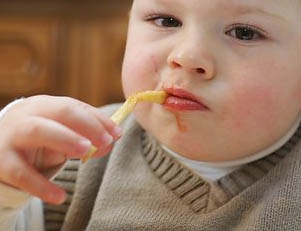'strict upbringing' linked to child obesity, claim researchers | nursing times
- Select a language for the TTS:
- UK English Female
- UK English Male
- US English Female
- US English Male
- Australian Female
- Australian Male
- Language selected: (auto detect) - EN

Play all audios:

A strict Victorian-style upbringing can increase the chances of children being obese, according to Canadian researchers. Scientists studied the effects of a rigid parenting style strong on
rules and light on affection and dialogue. Households where the attitude that “children should be seen and not heard” still prevailed were more likely to generate overweight youngsters. The
researchers looked at a population of 37,577 children aged 11 and younger, comparing those with very different kinds of parents. > “Parents should at least be aware of their parenting
style” > > Lisa Kakinami One parent group set boundaries, but were generally affectionate and happy to discuss behaviour with their children. The other imposed strict rules but showed
little affection and was unwilling to negotiate. Children of the authoritarian group had a 30% higher chance of being obese at age two to five, and a 37% higher chance at age six to 11.
Lead researcher Lisa Kakinami, a postdoctoral fellow from McGill University in Montreal, said: “Parents should at least be aware of their parenting style. “If you’re treating your child with
a balance of affection and limits − these are the kids who are least likely to be obese,” she said. The researchers compared parents’ answers to a cross-sectional survey, then categorised
parenting styles and matched them to children’s body mass index (BMI). BMI is a measurement that relates height and weight and is often used to define overweight and obesity thresholds.
Poverty was also associated with childhood obesity, but parenting affected the BMIs of children regardless of income level, the scientists found. The findings were presented at an American
Heart Association meeting in San Francisco. * Read the study abstract presented at the American Heart Association meeting